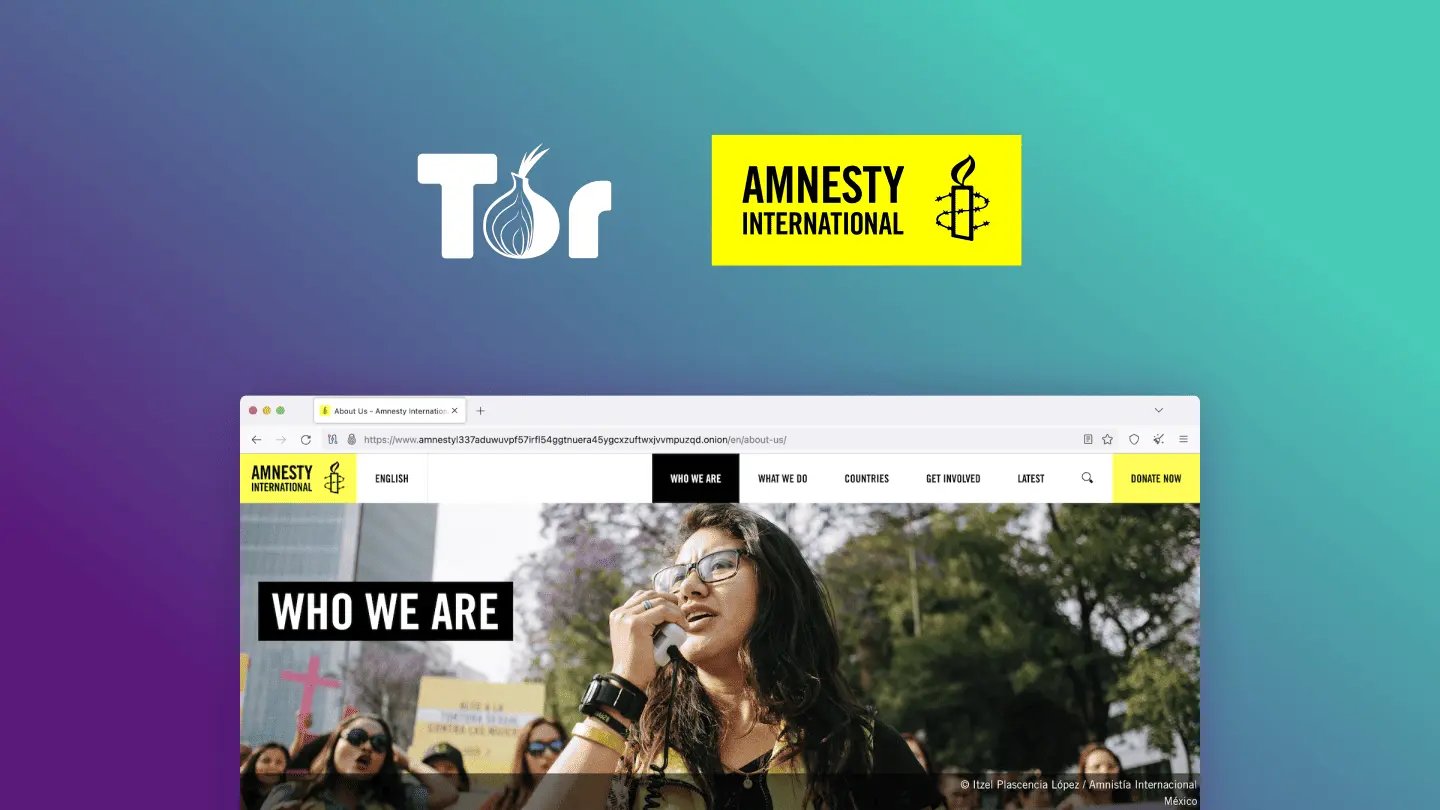For those who are still on Win 7: Firefox (and so Tor Browser) will stop supporting Win 7 soon. Seriously, you better plan to migrate to Linux. Not-so-good privacy issues aside, everyone knows Windows is not very secure/safe/convenient anyway.
Maybe what you’re thinking is like an XMR version of Bisq's “Get your first BTC” room?
https://bisq.wiki/Getting_your_first_BTC This dilemma is real and understandable, while it’s not clear what would be the best solution:
For new users, Bisq requires between 0.002 and 0.007 BTC for traders to make their first trade: [...] It can be difficult for new bitcoiners to acquire their first coins, so this requirement is often a barrier for new Bisq users. The Get your first BTC room offers one possible way to get this initial bitcoin without signing up for a centralized exchange.
Basically the same thing for Haveno, I guess.
Posteo is an innovative email provider that is concerned with sustainability and privacy and is completely ad-free. Our email accounts, calendars and address books can be synchronised - we use comprehensive encryption.
> “It is completely absurd to inflict mass surveillance on the general public under the premise of fighting theft.”
> It comes at a cost to the privacy and civil liberties of the people of Britain.
Another bad experience related to Mastercard: https://monero.town/post/1791576
Cake Pay should be fine for most gift cards, I don’t think they usually ask for KYC for those.
So perhaps your recent bad experience with Mastercard EUR cards are rather exceptional?
Thanks for warning. Saw https://monero.town/post/872283 too. Guess Cake Pay may be convenient for those who are fine with KYC. Another option, that Stealths thing is more expensive (higher fees), so basically if you want to buy a gift card here or there, you’ll have to choose between (possible) KYC and higher fees. Or so it seems…
According to @azalty@monero.town, Cake Pay works fine if you’re fine with KYC, and otherwise you may just lose your money: https://monero.town/post/872283
If you’re a privacy advocate not fully supporting KYC but want to try this anyway, then try a small amount, because you may lose all your money. Another recent option is more privacy-friendly and KYC-free, but the fees are higher with them.
We know the ability to get Monero will not be essentially affected—after all, this is not the first time, nor the second time, when Monero is delisted. It seems reasonable to admit, though, that ultimately the ability/freedom to spend Monero might be limited if legit (e.g. hosting) companies can’t accept it in the future—directly or indirectly because of MiCA etc. Although, what will happen in such a situation may be seen as an interesting experiment.
Since the posted link is not very Tor-friendly behind CF, similar random links just in case…
- OKX exchange delists privacy coins, including Monero, Dash, and Zcash https://www.cryptopolitan.com/okx-delists-privacy-coins-monero-dash-zcash/
Following the announcement, privacy tokens such as Dash (DASH), Monero (XMR), and Zcash (ZEC) witnessed a notable decline of up to 10%
- Important OKX Delisting Announcement Concerning Large Subset of Altcoins https://cryptopotato.com/important-okx-delisting-announcement-conrcening-large-subset-of-altcoins/
The prices of some of these tokens have headed south shortly after the announcement. XMR is down nearly 3% in the past 24 hours, while ZEC has plunged by 10%
- Crypto Exchange OKX All Set to Delist Privacy Coins https://thenewscrypto.com/crypto-exchange-okx-all-set-to-delist-privacy-coins/
- Zcash and Monero on the chopping block for delisting https://www.cryptopolitan.com/naira-is-about-to-have-its-worst-year-ever/
The concept may be lovely, but the fact is, many people nowadays have been Pavlov’ed to immediately ignore anything weird that says, "Congratulations! You got some money. Visit this URL and input something." As they say, the Cake is a lie…
Monero could be a wonderful gift to a friend of yours if they’re especially interested in privacy (in that case, you might want to talk to them privately, and perhaps recommend a better wallet). Otherwise, it may be kind of like casting pearls before swine…
The blog post says, “it is possible to build technology used by millions of people with privacy at the heart.” which is also related to Monero, for example. It’s related to online privacy in general, not exclusively about Tor. For example, it includes a clear answer to the “Nothing to hide” argument:
http://wl.vernccvbvyi5qhfzyqengccj7lkove6bjot2xhh5kajhwvidqafczrad.onion/wiki/Nothing_to_hide_argument?lang=en
It’d be nice if even a single non-Tor user is interested in this… but if the link is onion, a non-Tor user can’t read it! Hence a clearnet link… Does that make sense? I too agree with you that, basically, we better promote onion when available. Except I wanted to share the link with people in general, non-Tor users too :)
by Sophia Cope, Amul Kalia, Seth Schoen, and Adam SchwartzDownload the report as a PDF.EXECUTIVE SUMMARYThe U.S. government reported a five-fold increase in the number of electronic media searches at the border in a single year, from 4,764 in 2015 to 23,877 in 2016.[fn] Gillian Flaccus, Electronic.....

> The right time to start protecting your digital privacy is before your trip […] The simplest and most reliable precaution against border searches is to reduce the amount of information that you carry across the border.
[!image](https://monero.town/pictrs/image/21c08bef-3967-4445-b9d2-9f0354ac14b7.webp "Click to Enlarge") *** > Sometimes law enforcement officials achieve so-called “consent” by being vague […] You can try to dispel this ambiguity by inquiring whether border agents are asking you or ordering you […] If an agent says it is a request only, you might politely but firmly decline to comply with the request. > > If you are a U.S. citizen, border agents cannot stop you from entering the country, even if you refuse to unlock your device, provide your device password, or disclose your social media information. However, agents may escalate the encounter if you refuse. > > If you elect to comply with a border agent’s order to unlock your device, provide your password, or disclose your social media information, you can inform the agent that you are complying under protest and that you do not consent. *** > It is possible that if you unlock your device, and agents then search your device, a court will rule that you consented to the search. […] As noted in Part 1, the best way to avoid an inadvertent “consent” to search is to decline to unlock your device, provide the device password, or provide any social media information. > > Technically, you don’t even need to admit that you know the password. > > If you believe that border agents violated your digital rights at the border, please contact EFF at borders@eff.org. *** See also:
- https://www.eff.org/document/eff-border-search-pocket-guide
- https://www.eff.org/issues/border-searches
- https://monero.town/post/402125 Fifth Circuit says law enforcement doesn’t need warrants to search phones at the border
Google has released emergency updates to address a new actively exploited zero-day vulnerability in the Chrome browser.

> The fact that the issue was discovered by Google TAG suggests it was exploited by a nation-state actor or by a surveillance firm. > > As usual, Google did not publish details about the attacks exploiting the flaw in the wild.
See also: https://www.cert.europa.eu/publications/security-advisories/2023-100/ > This vulnerability also affects Chromium-based web browser such as Microsoft Edge [3], Brave, Opera, and Vivaldi.
Thanks for the suggestion. ONION LINK added in the post. The main link itself is intentionally clearnet, for happiness shall be in heaven over one non-Tor user who feels curious about Tor and privacy, more than over 99 right users, who already use TB 24/7. (Luke 15:7)
TB recently gets rid of blockchair: http://eweiibe6tdjsdprb4px6rqrzzcsi22m4koia44kc5pcjr7nec2rlxyad.onion/tpo/applications/tor-browser/-/issues/42283
and is planning to get rid of Google etc. from its Search Engine Options http://eweiibe6tdjsdprb4px6rqrzzcsi22m4koia44kc5pcjr7nec2rlxyad.onion/tpo/applications/tor-browser/-/issues/41835
Tor Browser is planning to remove Google from the search engine options a user can choose: https://gitlab.torproject.org/tpo/applications/tor-browser/-/issues/41835
There some say brave onion + no JS is good: https://search.brave4u7jddbv7cyviptqjc7jusxh72uik7zt6adtckl5f4nwy2v72qd.onion/
Mullvad team seems to be considering 4 possible options:
- Startpage: https://www.startpage.com/
- Mojeek: https://www.mojeek.com/
- Brave Search: https://search.brave.com/
- Metager: https://metager.org/
PS: Not disgussing ddg / ddg onion too much, basically because ddg is the long-time default search engine of TB. Most TB users assume ddg is a decent, standard, generic option, esp. its non-JS version.
You can now buy access to Binance s law enforcement request panel for 10 000 in bitcoin or monero according to a post on black hat hacking discussion site Breach Forums As reported by CoinDesk darknet publication InfoStealers

>“Some Hackers have figured out there is no quick and easy way for a company that receives one of these EDRs (emergency data request) to know whether it is legitimate,” he said. > >“The hackers will send a fake emergency data request along with an attestation that innocent people will likely suffer greatly or die unless the requested data is provided immediately.”
Ten years ago, Edward Snowden shared documents with the press that exposed the extent of the U.S. government’s mass surveillance program – and used Tor to protect himself while doing so. How has the perception of privacy changed since then, and what are the Tor Project’s challenges for the year to c...

>privacy has nothing to do with having something to hide. Instead, privacy means protecting the human being that you are, all the personal details that make you, you. What you care about, what you love, what you hate, what you are curious about, what makes you laugh, what you fear. And most importantly, choosing when you decide to share that information and who you share it with.
>it is possible to build technology used by millions of people with privacy at the heart. We build technology to advance that right in order to help users reclaim their agency in digital spaces.
(But by default, Tor Browser is not shipped with uBlock Origin.)
PS: ONION LINK http://pzhdfe7jraknpj2qgu5cz2u3i4deuyfwmonvzu5i3nyw4t4bmg7o5pad.onion/tor-in-2023/index.html
The Utah Supreme Court ruled that prosecutors violated a defendant’s Fifth Amendment privilege against self incrimination when they presented testimony about his refusal to give police the passcode to his cell phone. In State v. Valdez, the court found that verbally telling police a passcode is “tes...

NOTE: This is about the Fifth Amendment protection against self-incrimination after a search warrant for someone’s cell phone is procured; not about digital privacy in general at the U.S. Border (a warrantless search).
See also: https://monero.town/post/1134494 EFF to Supreme Court: Fifth Amendment Protects People from Being Forced to Enter or Hand Over Cell Phone Passcodes to the Police
Trocador shows it explicitly whether a specific CEX is no-log or requiting IP logging, which you can choose. This new thing doesn’t even has TOS nor Privacy Policy to begin with. Yet as long as you use onion, logging by the front-end is rather irrelevant.
Even if the front-end is not logging anything (which no one can verify), a CEX behind it surely records the tx and retains it as required by laws (some of them might be less than perfectly legal and might not record anything, though that would mean a different kind of risk). Using a CEX is more or less risky, be it Trocador or something else. Some may think that an instant swap by CEX is convenient. Personally I prefer DEX, even though it may be less convenient, even though Monero.town itself has an official affiliate link to Trocador too.
Asia might potentially be a better idea (not Japan or Korea though)
You mean, like Hong Kong, or India, maybe? What do you mean by “not Japan or Korea though”? I’d feel China would be worse. Privacy-focused services tend to be pricey anyway, both in Europe and in the US, and the price comparison is tricky as EUR/USD can move weirdly. If you’re talking about Njalla (Sweden), it’s indeed rather expensive.
Although France seems to be generally anti-cryptography, of course you wouldn’t go to jail just because you use Tails. There was this notorious incident related to French activists & Proton, though. Also, the Netherlands can be scary. They arrested a developer of Tornado Cash, right? Although, those things have nothing to do with VPS!
Thank you so much! These minor details are really helpful :D Happy holidays!
Hey this is not a popularity contest! People are not reading it because they like OP. They’re simply interested in some general info, not someone’s personal opinions. Besides, the small-numbered “score” (called upvote?) like 5 or 10 or 15 is not significant. We’re simply sharing links for general awareness!
Here in Monero town you might be misunderstanding that yours was ignored (which is NOT true!) because I happened to post a similar link… But your cross post to the same link at !Privacy@lemmy.ml got a low score too, certainly not my fault.
Many people read whatever if interested, but not necessarily upvote, so don’t worry about score :)
Work done with anxiety about results is far inferior to work done without such anxiety, in the calm of self-surrender. You have the right to work, but for work's sake only.
It’s true that the EU is getting “difficult”. Ironically, the US (without GDPR) can be better, where the right to anonymous speech is more or less protected (although, of course, US hosting companies in general are not good for that).
IncogNet is a good example, where you can get a domain anonymously, just like from Njalla but the price being much affordable. Not only that, they’ll set up an onion/I2P version for your website for free. (This is not a recommendation, though. DYOR.)
Floki was once famous but, yeah… they’re getting a bit less popular now after the Covid things. It’s not Iceland and Seychelles based; basically it’s a German company, having servers in Iceland, Finland, Romania, and the Netherlands. Iceland was once very popular, but anymore. Using a .is domain now assuming it’s “safer” is a bit yesterday.
Especially, be aware of France: they’re like “you use encryption because you have something to hide, doing something bad.” Also, you might want to avoid EU domains (.fr etc.) in general: check about NIS2, so called “Thick Whois“ to see what this means. For example, you can’t get a .nl anonymous domain anymore (a recent change); a similar trend being expected soon in other EU registrars/resellers i.e. “domain KYC”.
PS: Incognet is based on Fran's (Frantech/BuyVM) in Canada, which has been generally trusted and has some good track record. One might want to consider BuyVM etc. too (Not a recommendation, DYOR).
PPS: Incognet accepts xmr, but you can’t do crypto-related things like mining on their servers. A negative point for some of us.
Exactly how does you activate it? Ordering itself is kyc-free (and even Tor-friendly?) but you’ll need to show your IP to activate it, of course?
@stealths@monero.town Thanks for clarification!
- For example, a user in China can buy a card from you, redeem (activate) it and use it internationally, except they can’t use it in shopping at an online shop China?
- A user in Pakistan can not activate it and use it at all, though others can use it for shopping internationally incl. at at online shop in Pakistan.
It that what this means? I assume activation then includes GeoIP? I’m very happy that a few user reviews are positive anyway. You know, some “services/companies” advertising here tend to be a bit sketchy or iffy. Your prepaid card business seems a honest one, at least now! Thanks for joining monero.town :) I hope this can be convenient & fruitful for both users and you 🐱
Congress renews warrantless spying tool scribbled on back of huge check for the Pentagon

>Now before the House, HR 6570 proposes to reauthorize Section 702 for three years — but with reforms including requiring all US intelligence agencies to obtain a warrant before conducting a US person query.
>a competing bill, the FISA Reform and Reauthorization Act of 2023 (HR 6611), doesn't include a warrant requirement — and, in fact, includes language that many worry could be used to force private US companies into assisting in government-directed surveillance
Visa International (Just fyi): The supported country list by Stealths and the similar list by Tremendous are slightly different. The differences (if real) might be mostly relevant to Chinese users.
These three are included in Stealths’ list, but not included in Tremendous’ list:
China, Hong Kong (*Taiwan is in both lists), Swaziland
These countries/areas are not inluded in S’s list, but are included in T’s list:
Bosnia and Herzegovina, Burundi, Congo (*Flag of Congo-Brazzaville is shown), Eswatini, Pakistan, Panama, Saint Helena, Saint Pierre and Miquelon
Pure P2P may survive. It’d be less convenient, though, if privacy coins were outlawed and business companies (e.g. hosting) couldn’t legally accept them!
Critics of reauthorizing FISA without significant reform cite recent reports that the FBI has abused its power under section 702

> House Intelligence Committee bill would also expand the definition of an electronic communication service provider include a broader range of providers, including those who “provide hardware through which people communicate on the Internet.”
See also: Tell Congress: They Must Defeat HPSCI’s Horrific Surveillance Bill | EFF Action Center
Explore our in-depth critique of FinCEN's policy proposal FINCEN-2023-0016, examining its potential overreach on freedoms. Learn how it may violate Fourth Amendment protections, free speech, financial privacy, due process, and more. Discover our insights on the implications for individual rights and

How FinCEN May Be Violating Your Rights\ A call to action against FINCEN proposal 2023-0016A\ Written By Preston Pysh
>Eroding Anonymity Through Additional Verification: The mandate for “Additional Customer Identity Verification Measures for Transactions Involving Unhosted Wallets” is a direct affront to privacy and anonymity. This requirement transgresses on the First Amendment’s sanctuary for anonymous speech > >A Direct Assault on Anonymity-Enhanced Currencies: The “Prohibition on the Use of Anonymity-Enhanced Convertible Virtual Currencies (AECVC)” is nothing short of a legislative bulldozer through the edifice of privacy.
See also: Preston Pysh says proposed FinCEN crypto rules violate US Constitution
Eine neue EU-Verordnung könnte es staatlichen Behörden ermöglichen, die Kommunikation aller Bürger:innen auszuspähen, so die Kritik von hunderten Wissenschaftler:innen und dutzenden NGOs. Abgeordnete des Europaparlaments reagieren darauf – und offenbaren ihr technisches Unverständnis über die Praxis...

> Bis zum Jahr 2030 will die EU allen Bürger:innen eine „European Digital Identity Wallet“ (ID-Wallet) zur Verfügung stellen. Sie soll on- wie offline bei Verwaltungsgängen und Bankgeschäften, aber auch bei Arztbesuchen, Alterskontrollen oder beim Internetshopping zum Einsatz kommen.
(By 2030, the EU wants to provide all citizens with a “European Digital Identity Wallet” (ID wallet). It is intended to be used online and offline for administrative procedures and banking as well as medical visits, age verification, and internet shopping.)
The article (in German) is mostly about eIDAS 45\ Cf. https://monero.town/post/1018961 Last Chance to fix eIDAS: Secret EU law threatens Internet security
(There are many English articles about it; see e.g.\ https://mullvad.net/en/blog/eu-digital-identity-framework-eidas-another-kind-of-chat-control )
Though not the main topic of the article, this “ID wallet” thing sounds disturbing. (EU politicians calls a normal wallet “unhosted wallet” and don’t like it very much.)
Amnesty International is launching their website as a .onion site to provide unrestricted access to its human rights resources, enabling more people to safely and securely engage with the vital work of speaking truth to power, and defending human rights.

>Many countries use censorship systems to block access to human rights resources
>.onion sites are particularly useful at maximizing internet users' privacy and anonymity because they never leave the Tor network.
While technically I2P might be better, it’s good news that a recognized human rights organization has adopted an onion, because that will improve the “shady” image of Tor, esp. hidden services (aka darknet), as in “privacy technology is good, not for criminals, but for you, for everyone. Using Tor is normal, and Monero is a great tool.”
> law enforcement has been using […] systems since 2015, in utmost secrecy. The software in question […] can track a person across a network of cameras, for instance, by the color of their sweater
> Any policeman […] can request to use [it]
> The potential use of facial recognition worries within the institution itself. […] In France, facial recognition is only authorized in rare exceptions
> This massive installation was carried out outside the legal framework provided by a European directive and the French Data Protection Act
The National Commission on Informatics and Liberty (CNIL), a French administrative regulatory body, started an investigation against the French Minister of the Interior [1][2]. The Minister, Gérald Darmanin ordered an investigation [2].
- [1] https://nitter.oksocial.net/CNIL/status/1724745047537488019 [French]
- [2] https://web.archive.org/web/20231121093507/https://www.ouest-france.fr/politique/gerald-darmanin/entretien-gerald-darmanin-lantisemitisme-le-signe-dune-societe-qui-ne-va-pas-tres-bien-938b76ce-856c-11ee-9632-b62f00689e79 [French] > La Cnil […] annonce l’ouverture d’une enquête contre le ministère de l’Intérieur. Elle soupçonne la police d’utiliser un logiciel de reconnaissance faciale, depuis 2015, en dehors de tout cadre légal. Qu’en est-il ?
(CNIL suspects the police are using facial recognition outside any legal framework. Comments? - Gérald Darmanin’s answer: The news is true. I ordered an investigation.)
A WIRED analysis of leaked police documents verifies that a secretive government program is allowing federal, state, and local law enforcement to access phone records of Americans who are not suspected of a crime.

>the White House has, for the past decade, provided more than $6 million to the program, which allows the targeting of the records of any calls that use AT&T’s infrastructure
>the program takes advantage of numerous “loopholes” in federal privacy law
>the DAS program has been used to produce location information on criminal suspects and their known associates, a practice deemed unconstitutional without a warrant
(This website is a bit annoying.)
> See https://monero.town/post/968066
Onion http://rurcblzhmdk22kttfkel2zduhyu3r6to7knyc7wiorzrx5gw4c3lftad.onion/
This free email provider is not for everyone. Sometimes a Cockmail address is not accepted to register something. Sometimes, though not often, another email provider may indiscriminately block email from Cock.li. Afaik Cock.li<->Proton, Cock.li<->Tuta work. *** PS: Admin, Vincent Canfield @vc@shitposter.club
WASHINGTON, D.C.—The Electronic Frontier Foundation (EFF) today asked the Supreme Court to overturn a ruling undermining Fifth Amendment protections against self-incrimination and find that constitutional safeguards prevent police from forcing people to provide or use passcodes for their cell...

See also: Fifth Circuit says law enforcement doesn’t need warrants to search phones at the border https://monero.town/post/402125
Walmart subsequently pulled the affected tablet from its online store, while Amazon and Google said they are investigating.

> The app store “collects and sends data […] This includes information like device model, brand, country, timezone, screen size, view events, click events, logtime of events, and a unique KID ID,”
> Hancock didn’t return the tablet to her daughter until after making changes to protect her daughter’s privacy.
> [She] even installed Tor, a browser that is designed to protect the anonymity of its user.
An awesome Mom, like Mrs. Roberts from xkcd!
#Monero on the front page of The Economic Times in India Freedom & Privacy have no borders
EDIT: Don’t take this too seriously; do not actually send a donation (unless you really want to, like admiring “Nice photoshopping!” “Thanks for the fun pic”). While it’s entertaining and thought-provoking, using their work this way is ethically questionable too. As @z0rg0n pointed out, one could even see this as a scam. Although it’s a fine work and freedom of expression is more important, this may more properly belong to “Memes”. *** EDIT2: This post and “cool if real” by @alphonse https://monero.town/post/1122495 were created almost at the same time. That was a coincidental post conflict; @alphonse’s post was actually earlier by about 1 hour! *** Is someone crowdfunding a Monero ad in India’s economic newspaper? > Interestingly, a Monero ad could be circulating in India’s traditional English newspaper: The Economic Times. The pseudonymous Stoic, author of “The Monero Standard,” shared a picture of the newspaper’s November 16th edition. In the picture, it is possible to see the paper’s opened front page with a large ad about XMR. > >> “Monero transactions respect your privacy. Can you say that about the INDIAN RUPEE or the U.S. DOLLAR?” > > Moreover, the image also includes a QR-Code for donations in “XMR only,” which suggests its owner is expecting to crowdfund what was spent for this supposed insertion.
>A storefront, said Ortis, is a fake business or entity, either online or bricks-and-mortar, set up by police or intelligence agencies. > >The plan, he said, was to have criminals use the storefront — an online end-to-end encryption service called Tutanota — to allow authorities to collect intelligence about them.
Tutanota (now Tuta) denies this: https://tuta.com/blog/tutanota-not-a-honeypot
Changpeng Zhao (CZ), the founder and CEO of Binance, the world's largest cryptocurrency exchange, stated in his statement that the executives of a client company they worked with were

> the onchain activities of the attackers were monitored and […] action was taken to freeze the wallets held by the attackers by working with other cryptocurrency exchanges
> a member of the cryptocurrency community questioned how Binance could freeze these funds despite the fact that cryptocurrencies are marketed as not being confiscable by third parties
> Changpeng Zhao […] said that the whole thing is a matter of balance. […] CZ implied that a solution to events such as theft cannot be found in a system that cannot be completely frozen.
> CZ stated that if users use privacy coins such as Monero (XMR), such freezes will not occur, but the stolen funds cannot be returned.
Cf.
- Almost entire balance (2675 XMR) of Community Crowdfunding System (CCS) Monero wallet has been stolen https://monero.town/post/983106
- Monero Project admits thieves stole 6-figure sum from a wallet in mystery breach https://monero.town/post/1045387
PS. See also: Bitcoin can be traced, If you use XMR, then there isn’t much anyone can do https://monero.town/post/1069626
As the crypto space continues to evolve, regulatory scrutiny is shifting towards privacy coins, with authorities wary of their misuse in activities such as money laundering.

> regulatory scrutiny is shifting towards privacy coins […] Understanding how they will be implemented in systems that are decentralized, where the developers and maintainers often maintain anonymity, is complex.
E.g. Bisq, Haveno
> compliance with these regulations becomes a paradox for such projects since the crux of privacy coins lies in their ability to mask transaction details, which inherently contradicts the essence of regulations […] Therefore, achieving full regulatory compliance for privacy coins may sometimes seem impossible. […] in the UK, the Financial Conduct Authority (FCA) has been proactive in educating consumers about the risks associated with privacy coins but has not implemented bans or specific regulations concerning them.
> in the United States, proposed legislation such as the STABLE Act could further extend the regulatory framework […] it’s plausible that the provisions of the STABLE Act […] could potentially mean that transactions involving privacy coins would need some form of identity verification
> A prime example of a regulatory shift impacting privacy coins is the European Union’s Fifth Anti-Money Laundering Directive (5AMLD) […] these platforms are now obliged to implement customer due diligence measures, […] verifying user identities and monitoring transactions for any signs of activity.
Potentially:
- Alice (unhosted wallet) sends coins to Bob (CEX) -> Alice is also KYCed by the CEX
- Alice (CEX) sends coins to Bob (unhosted) -> Bob is KYCed too